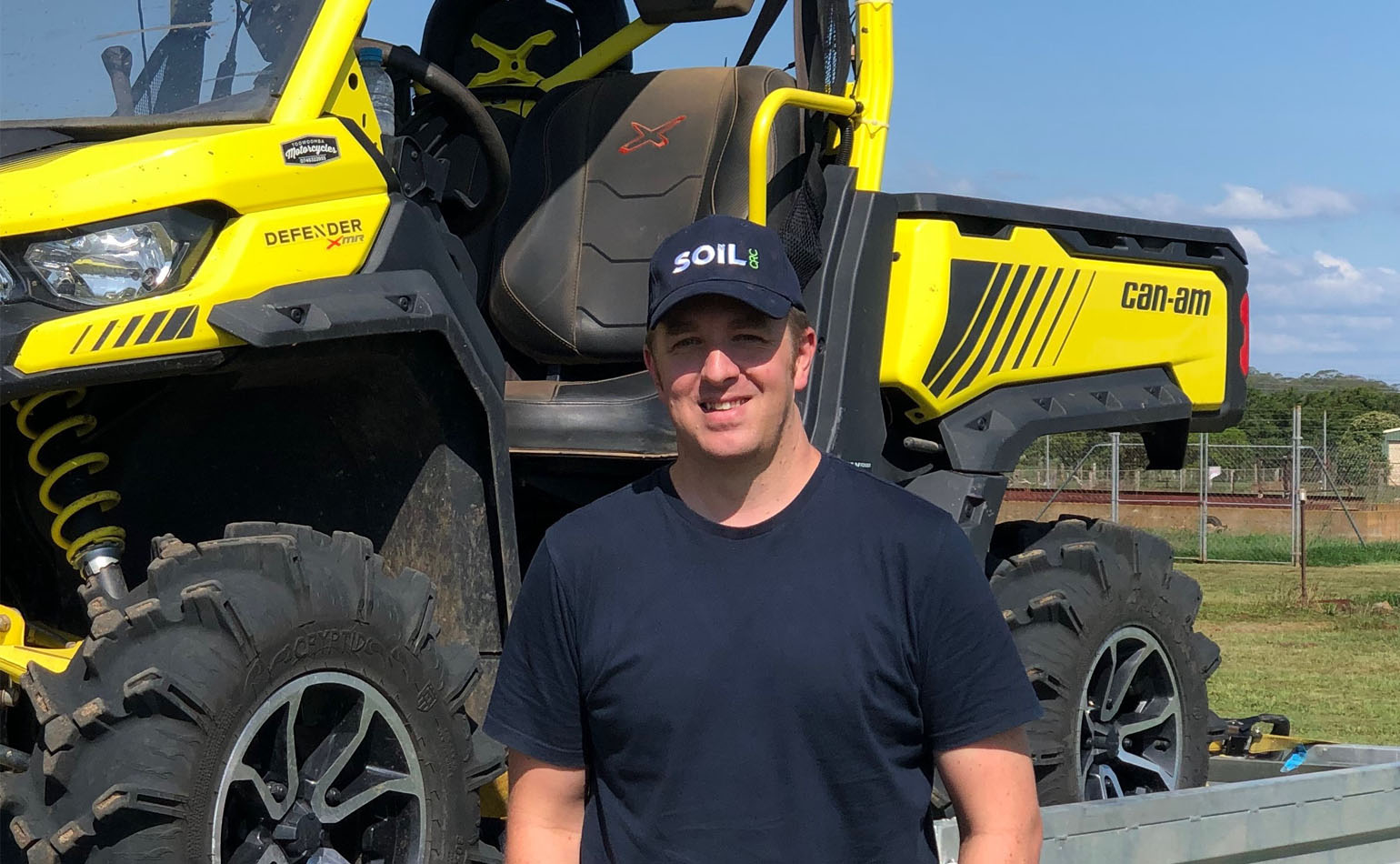Dr Craig Lobsey – University of Southern Queensland, Lecturer in Mechatronic Engineering. Soil CRC Project Leader.
Applying his mechatronic engineering expertise to agriculture is something that Dr Craig Lobsey says was just common sense.
“I love agriculture and soil but I particularly enjoy developing technology to better monitor and understand these complex systems. Agriculture is a great place to apply engineering and develop new sensor technology,” he says.
However, he didn’t start his career working with farmers and soil scientists.
After completing his undergraduate degree in engineering (Mechatronics) at University of Sydney, he worked at the Australian Centre for Field Robotics, also based at University of Sydney. Here he developed sensor technology, predominantly for the mining industry. Craig was inspired by his wife’s farming background and could see how his engineering skills could be used in agricultural systems. He then completed his PhD at the University of Sydney and the Australian Centre for Precision Agriculture with his research focusing on proximal soil nutrient sensing using electrochemical sensors. This decision set him on the path of agriculture.
“I love how soil is such a complex system and I enjoy using my mechatronics expertise to address some of the issues facing farmers and agriculture,” Craig explains.
After a stint working with the Queensland Department of Agriculture and Fisheries, and a post-doc at CSIRO developing sensor technology for soil carbon accounting, Craig moved to the University of Southern Queensland and now leads a research team within the Centre for Sustainable Agricultural Systems.
It was through the Centre for Sustainable Agricultural Systems that he became involved in the Soil CRC. Program 2 ‘Soil performance metrics’ is developing tools linked to soil management products that allow farmers to monitor and asses the performance of their soils and take corrective action where needed.
“The Soil CRC Program 2 is very aligned to the work I do,” Craig says.
The Soil CRC has a multi-disciplinary approach that sees expertise from different faculties coming together. Craig believes this model really works.
“The Soil CRC works across disciplines, but still manages to be a well-co-ordinated and cohesive group. More can be achieved by working together on complex soil issues. The CRC has the right group of people and expertise.”
Craig’s interest in soil sensors has now gone global. He is the Vice Chair of the International Union of Soil Science (IUSS) Working Group on Proximal Soil Sensing. With over 200 members worldwide it is a diverse group linking many disciplines of soil science, engineering and even archaeology.
Craig also leads the Soil CRC Project New sensors for measuring soil nutrients in Program 2 at the Soil CRC.
Having input from industry and farmer groups is invaluable for Craig’s research.
“In our project, we have had fantastic input from our grower groups. We’re working closely with them and will continue to do so. As our research progresses, we’ll be able to see how our sensor technology might be adopted and applied and tailor our development to suit different needs.”
“By giving farmers the ability to better measure soil chemical and hydraulic properties, we are helping them make more informed management decisions. Currently there is so much uncertainty due to the limited soil information available to farmers. This is something proximal sensing can address.”
The project is unique in that it is focusing on direct chemical sensing and also measurement of soil water and hydraulic characteristics – ultimately through the soil profile. The project will provide sensor technology that will feed into more integrated frameworks incorporating crop modelling and other data. This will then allow farmers to make more informed decisions.
Craig Lobsey will be speaking at EvokeAG in Melbourne 18-19 February. Craig will be speaking about how carbon-conscious farming techniques can improve soil health and productivity, reduce land degradation, restore landscape function, reduce the impact of fossil fuel emissions and increase resilience to climatic variability.

